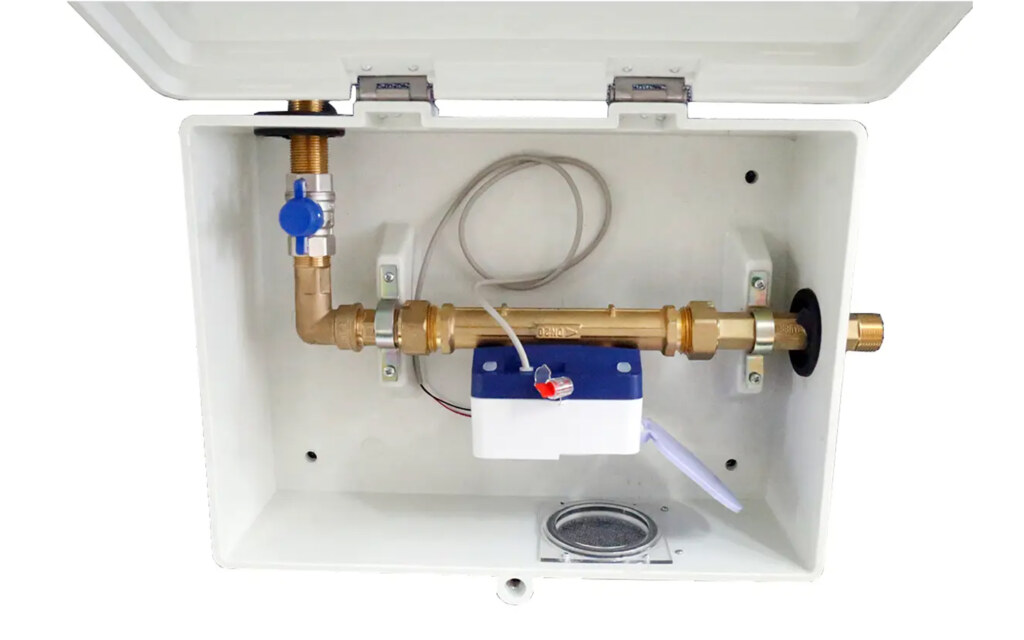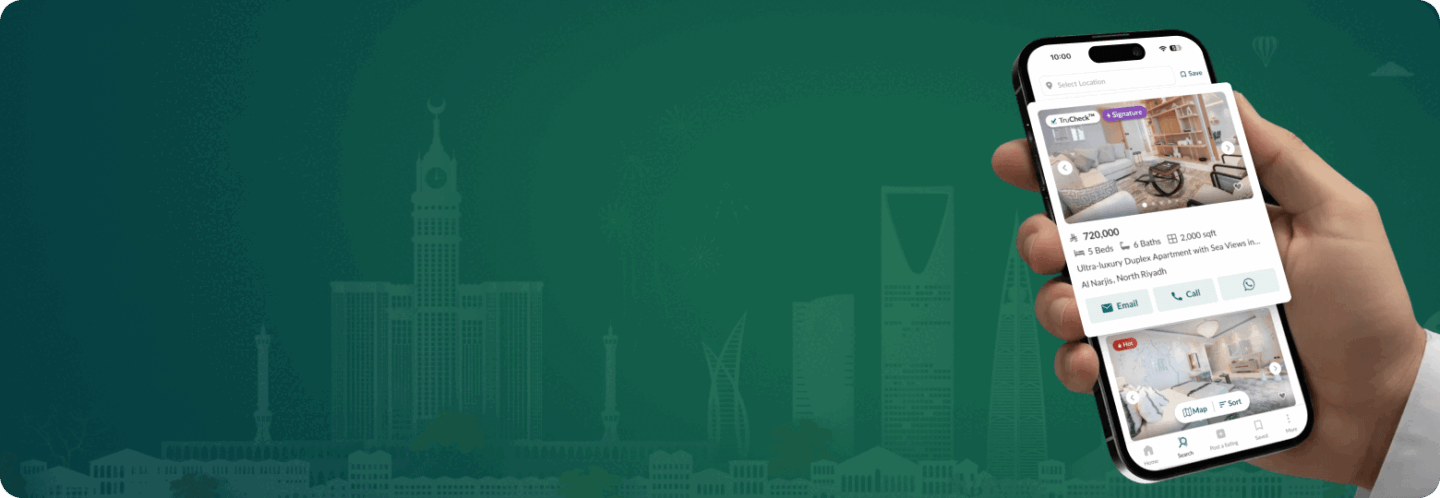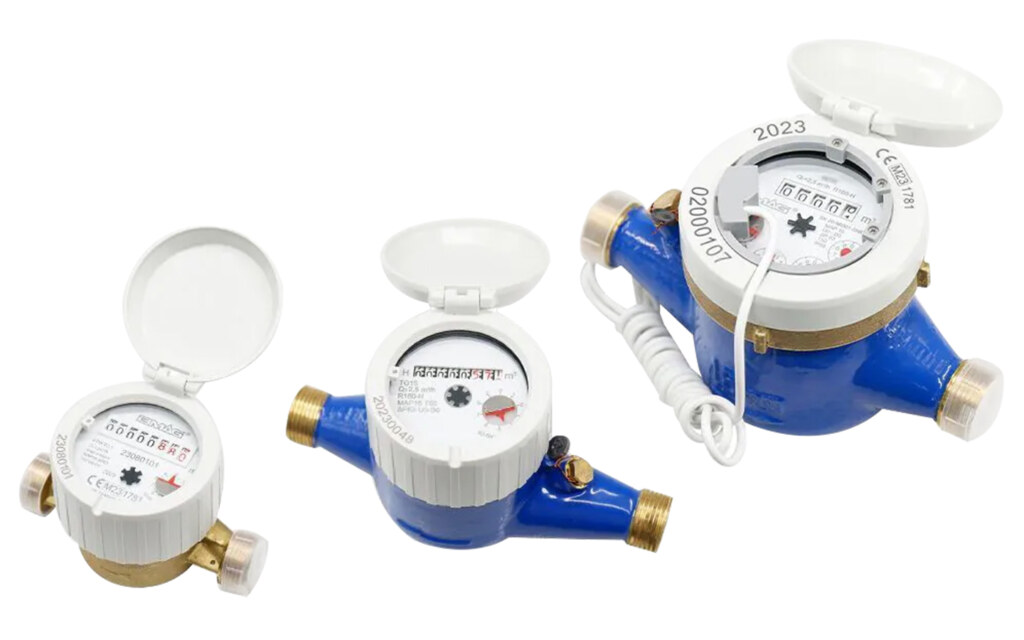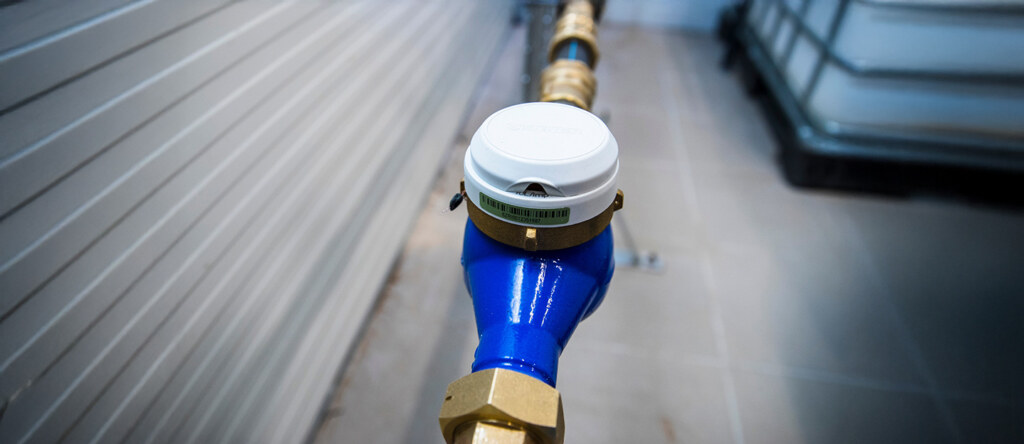In today’s era of digitalization, smart water meters are revolutionizing the way households and industries monitor and manage water consumption. From enhancing efficiency to reducing waste, these innovative devices are shaping the future of sustainable water use in the Kingdom.
In this article, we explore the role of smart water meters, their applications, advantages, and what the future holds, while highlighting the efforts of the National Water Company in deploying these technologies.

What are Smart Water Meters?
A smart water meter is an electronic device that uses technologies such as NB-IoT, LoRa, or Zigbee to measure water consumption and automatically send usage data to central systems without human intervention.
These meters operate using ultrasonic or electromagnetic waves instead of traditional mechanical components. Key features include:
Download Our App
Get the app and search experience among thousands of verified properties now!

- Reading water consumption every 15 seconds and transmitting it to data hubs
- Remote control of valves with leak detection alerts
- High accuracy, validated by independent European laboratories
According to the National Water Company, smart meters provide 100% accurate measurements, making them a reliable tool for households and industries alike.
Advantages of Smart Water Meters
Smart water meters outperform traditional meters in multiple ways:
- Early leak detection: Using AI-powered algorithms to identify anomalies in water usage
- Water conservation: Sending real-time alerts to users when consumption rises unexpectedly
- Precise measurement: Eliminating errors from air in pipelines, reducing incorrect billing
- Remote control: Automatic valve management to prevent wastage
- Long lifespan: Up to 10 years with official warranties
- Ease of use and payment: Real-time consumption tracking through mobile apps and platforms, supporting prepaid billing
What are the Applications of Smart Water Meters ?
Smart water meters are increasingly used in homes to alert users of high consumption, monitor usage, and support prepaid billing. In industrial and commercial settings, they enhance efficiency by reducing waste and optimizing usage. For smart cities, these meters facilitate equitable distribution and integrate with automated billing.
Future of Smart Water Meters
The future of smart water meters points toward integration with AI and the Internet of Things (IoT). Key trends include:
- Digital twins for predictive maintenance
- Advanced consumption analysis offering personalized recommendations
- Blockchain applications for water rights management
The National Water Company is developing a global data management system to monitor consumption in real-time and enhance billing accuracy.
National Water Company
Since 2016, the National Water Company has led the widespread deployment of smart water meters in Saudi Arabia. Achievements include:
- Covering over 1.3 million meters with wireless networks
- Installing more than 2 million smart meters, achieving over 94% coverage
- Following international standards with a 10-year warranty
Subscribers can contact the company through official channels to receive their smart meters or monitor consumption via its app.

The Future of Water in Saudi Arabia
These smart meters are redefining water management in Saudi Arabia, offering precise measurement, efficient resource use, and enhanced convenience for users. With ongoing efforts by the National Water Company, these devices are set to expand further, supporting sustainability goals and improving the overall quality of life.
The integration of AI, IoT (Click here for more about Internet of Things (IoT) in Construction), and blockchain will ensure that smart water meters remain at the forefront of innovative water management solutions.
Follow along the My Bayut Blog to stay updated with Saudi Arabia’s real estate market, trends, and more.






